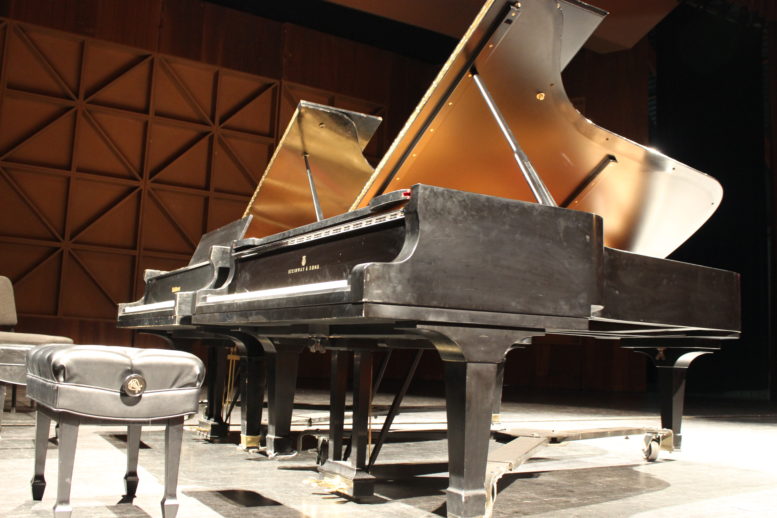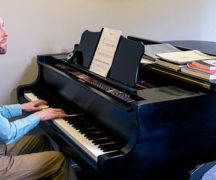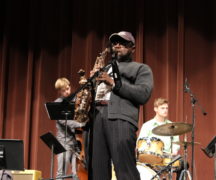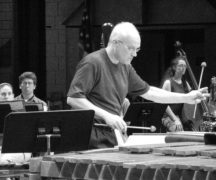By DAVID DUPONT
BG Independent News
When musicians stepped onto the stage of Kobacker Hall late last week to perform in the annual Competition in Musical Performance, there was not much of an audience.
A panel of five judges from outside BGSU sat in the center of the hall. Maybe a few more people, friends and fellow musicians, sat toward the back. The stage was starkly lit, and the only company performers had on stage was an accompanist and maybe a page turner for the accompanist.
The performers themselves had no pages to turn, no sheets of music to hide behind. They and their practicing over the past few months stood exposed.
Every year for the last 50 years, Bowling Green State University undergraduate and graduate students have stepped forward to exhibit their musical mastery.
This year 69 student musicians competed for four awards, two each for undergraduate and graduate.
They performed Wednesday through Friday with eight finalists returning on Saturday.
“This is definitely the ultimate test of everything they need to achieve artistically,” said Nermis Mieses, BGSU professor of oboe who coordinated this year’s event.
Each undergraduate performer must play up to 15 minutes of music for their instrument or voice and band or orchestra. Each graduate student can play up to 20 minutes. The music must be memorized. The competition is open to all instrumentalists and vocalists.
This tests the student’s discipline and artistry, as well as “how they handle themselves when they are performing,” Mieses said.
Saxophonist Piyaphon Asawakarnjanakit said the most important thing about a competition is it forces the musician “to work more and more.”
The first-year graduate student from Thailand said he knew he would participate as soon as he heard about the competition. After his Thursday afternoon performance he conceded he made a few mistakes, still “I’m happy to play my music.”
Flutist Aldulfulyne Padmore, another first-year graduate student, came away happy with her performance.
“I think I did very well,” she said. “It’s the best I’ve played the piece.”
She said she decided to play the concerto by Otar Gordelli because she had studied it before. She knew she wanted to participate in the competition as a way of adjusting to the greater demands of graduate study. Using a familiar piece allowed her to focus on the nuances and musicality more than just the notes.
And Padmore likes the concerto because it alternates between “schmaltzy” passages and jazzy passages that sound like Gershwin.
Her teacher Conor Nelson interjected that Padmore achieved such a high level of performance while working 27 hours a week for food service at the university.
Nelson said the competition is “an incredible opportunity for students to have feedback from outside judges.” He said “it forces you to prepare in all sorts of new ways and potentially can lead to success in other competitions.” Those are important as a musician starts on a career path.
Rose’s studio did well in the competition. Two of the four winners were flutists, as well as both named honorable mention, including Padmore.
The undergraduate competition winners were: Stephen Dubetz, clarinet, a student of Kevin Schempf, and Michelle Whitmore, flute, and Samantha Tartamella, flute, honorable mention.
Graduate division winners were: Kenneth Cox, flute, and Peisi Luo, piano, a student of Thomas Rosenkranz, and Padmore, honorable mention.
Daniel Bayot won the composition award for “The Philosophy of Wood.”
Jonathan Brian Guelfand, a student of Robert Satterlee, won the Virginia Marks Collaborative Piano Award.
The four competition winners will perform their pieces with the Bowling Green Philharmonia at a Feb 25 concert in Kobacker.
Mieses said the panel of judges remarked on the high level of performance from all the competitors. The large number of students who choose to participate, she said, “certainly shows how we continue growing as a school.”





